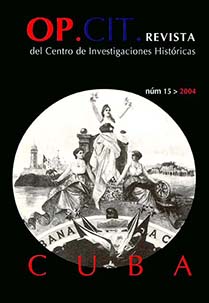Abstract
This article analyses the evolution of the Cuban economy in the early decades of the 20th century in a comparative perspective in Latin America. The estimations and conclusions of several recent pieces of research are used, some of these written by myself, to examine the causes and effects of insular independence in relation to the characteristics of production specialization, and the reasons why this was maintained, and even reinforced, in spite of changes in some of the driving factors that gave rise to the economic and socio-political system in the period between the wars. There is also an analysis of the effect of this process on the growth of national income and on other indicators of development.

